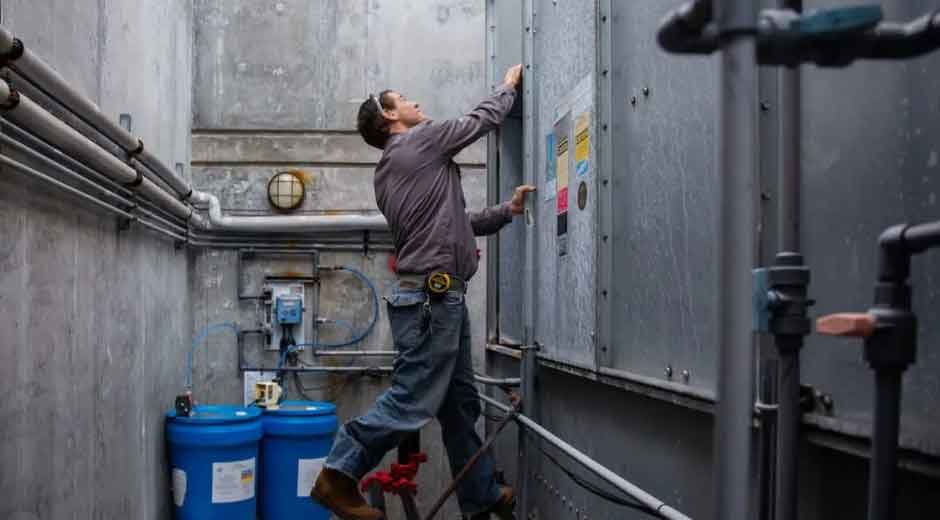Preventive maintenance used to be a polite suggestion in the HVAC industry, a line item that some clients accepted and others waved off until something failed. Today, it’s moving to the center of contractor strategy. Businesses and homeowners are far less interested in dealing with urgent calls, missed workdays, and the headache of coordinating emergency service. They want certainty, and smart maintenance plans are giving them exactly that. Contractors who structure these plans well are finding they don’t just reduce emergency visits, they create steadier income, higher customer retention, and a reputation for being the company that keeps systems running without the drama.
Shifting From Reactive to Proactive Service
For decades, the HVAC business was built on responding to problems. A furnace went out in January or a rooftop chiller sputtered during a heat wave, and the contractor got the call. It was good money, but unpredictable, and clients often associated those visits with stress. The shift toward proactive service changes that relationship. Instead of waiting for something to break, contractors are scheduling seasonal inspections, cleaning components, and replacing worn parts before they fail. This approach keeps the conversation with customers positive because the interaction is about preventing trouble rather than dealing with it. It’s also a better use of technician time, smoothing out workload over the year instead of relying on the peaks of heating and cooling seasons.
The Role of Data in Preventing Costly Breakdowns
A big reason maintenance plans are more effective now is the rise of affordable sensors and connected devices. Modern HVAC systems can send alerts when performance dips or a component starts drawing more power than usual. Contractors can act before the problem becomes obvious to the client, often avoiding costly breakdowns entirely. That’s more than just a value-add—it’s a selling point that clients understand right away. In the commercial space especially, a shutdown can mean lost revenue, unhappy tenants, or penalties for failing to meet service agreements. The ability to say, “We’ll see the problem coming before you do” has become a powerful close.
Bundling Maintenance With Technology Tools
The plans themselves are only part of the story. Many contractors are pairing them with digital tools to make the process seamless. This is where commercial HVAC software comes into play. Instead of keeping service records in separate files and relying on memory for follow-up, these platforms track every visit, part replacement, and performance trend. They can automatically schedule reminders, generate proposals for needed work, and give clients a clear record of how their system has been cared for. The transparency builds trust, and the automation keeps service agreements from slipping through the cracks. Contractors who use the best HVAC software for their size and market are finding it easier to scale, adding more maintenance customers without overwhelming their administrative staff.
Making Maintenance Plans Easy to Say Yes To
Selling a maintenance plan is as much about presentation as it is about technical skill. Clients need to see immediate, tangible value. This might mean offering a small discount on labor rates for plan members, giving priority scheduling, or including free filter changes. The perks aren’t just add-ons—they help customers compare the cost of the plan with the cost of going without one. Many contractors are also offering flexible payment options, turning annual agreements into manageable monthly fees. That small shift makes it easier for clients to commit and keeps the contractor’s cash flow steady.
Training Technicians to Sell Without Selling
A technician’s recommendation carries more weight than any brochure. Training service staff to identify signs of wear, explain the long-term benefits, and present a maintenance plan naturally during a visit can make a significant difference. The key is making it a conversation, not a pitch. When a technician points out that a blower motor is running hotter than normal and explains how the maintenance plan covers proactive replacement, the offer feels like a solution rather than a sale. This is where field experience and soft skills meet, and the companies that invest in both are seeing stronger plan adoption.
Retention Through Relationship, Not Just Service
A maintenance plan isn’t only a contract—it’s a relationship. Every scheduled visit is an opportunity to strengthen that connection, answer questions, and reinforce the customer’s trust. The more familiar a technician is with a system and its history, the more effectively they can keep it running and anticipate needs. That familiarity works both ways. Clients come to know the company as reliable, responsive, and invested in their comfort or operational efficiency. When replacement time comes, they’re far more likely to stick with the contractor they already trust rather than shop around.
Sustaining Growth Without Overextension
Smart maintenance plans let HVAC contractors grow in a way that doesn’t stretch their teams thin. Regular, planned visits keep workloads predictable, reduce burnout, and improve overall service quality. They also generate a recurring revenue stream that cushions the ups and downs of seasonal demand. For many in the industry, that stability is the difference between scrambling for work in the off-season and confidently planning for expansion. Contractors who balance plan sales with capacity and leverage modern tools are building businesses that can handle more clients without sacrificing service quality.
Bottom Line
The rise of smart maintenance plans in HVAC contracting isn’t just a trend—it’s a shift in how the industry approaches service, revenue, and customer loyalty. Contractors who embrace proactive care, integrate technology, and focus on building trust are setting themselves apart in a competitive market. The real win is mutual: clients avoid emergencies and interruptions, and contractors secure steady work that strengthens their reputation over time.






